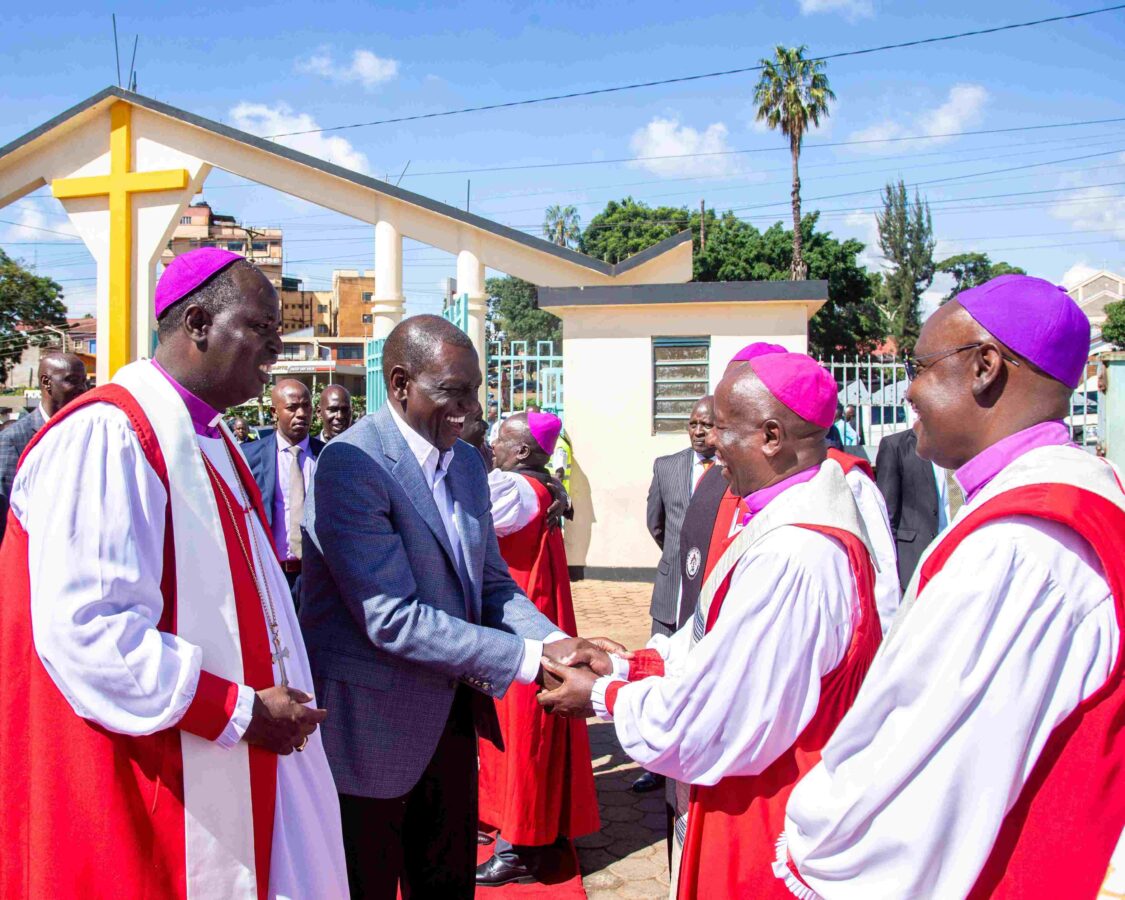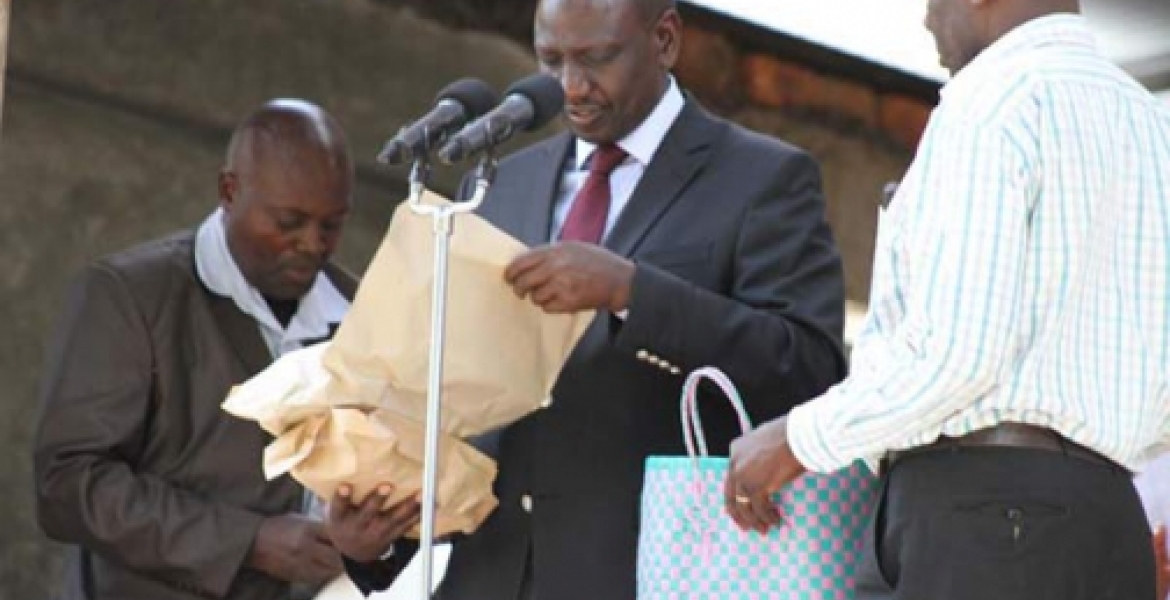Kenyan President William Ruto has come under fire after pledging approximately $150,000 to a Nairobi church—just months after denouncing such donations as a breeding ground for corruption.
Ruto’s contribution of 20 million shillings to the Jesus Winner Ministry Church sparked protests, with demonstrators gathering outside the church a week later, demanding the return of what they called “stolen tax money.” Police dispersed the protest with tear gas.
Church donations and fundraisers are a long-standing tradition in Kenya, where politicians frequently use religious platforms to connect with citizens in the predominantly Christian country.
However, the practice has grown increasingly controversial since mass protests erupted last June against tax hikes, corruption, and police brutality. In response, Ruto banned government officials from participating in public fundraising drives.

President William Ruto with Church leaders
“No state officer or public servant shall participate in public contributions or any harambees (fundraisers) going forward,” Ruto declared at the time, warning that such contributions “breed corruption.”
Yet, his recent actions appear to contradict that stance.
Even as police cracked down on demonstrators outside the Jesus Winner Ministry Church, Ruto was at another church in Eldoret, pledging an additional 20 million shillings (about $150,000) and promising to raise 100 million more for the same church.
Dismissing criticism, Ruto accused his detractors of lacking faith.
“These are people who don’t believe in God,” he said.
The government insists the money comes from Ruto’s personal funds, but many remain skeptical.
“Where is this money coming from? Bring us the receipts,” said Mwabili Mwagodi, an organizer of the “Occupy Church” movement, which seeks to separate religion from politics.
The movement has gained traction since last year when churches remained largely silent during nationwide protests. Activists responded by organizing flash mobs in Nairobi churches, forcing religious leaders to take a stand.
In one instance, the Catholic Church of Kenya rejected a donation from Ruto after Mwagodi encouraged Kenyans to inundate preachers with complaints.
“I am fighting to liberate the Church from political corruption in Kenya,” he wrote on X.
Allegations of Money Laundering
While some religious leaders have defended Ruto’s donations as a “Godly act,” others worry they may be linked to illicit financial activities.
“He is filthy rich and can afford it,” said Catherine Njoroge, a worshipper at Jesus Winner Ministry.
Despite multiple requests for comment, church leaders declined to speak to AFP. Meanwhile, armed police officers were stationed outside the premises this week.
Critics argue that the government may be diverting public funds to churches to solidify political support. Some fear these donations could also serve as a front for money laundering.
“Some churches use their huge congregations and platforms to provide politicians with political capital,” said Nairobi-based lawyer Javas Bigambo.
“This has been encouraging corruption,” he added.
Ruto himself once acknowledged these concerns. Last year, his administration introduced the Public Fundraising Appeals Bill—still pending in Parliament—to enhance transparency. Notably, the bill exempts funds raised by religious organizations.
Despite the government’s insistence that the fundraising ban remains in effect, several Ruto allies have continued to publicly engage in such activities.
Presidential spokesperson Emmanuel Talam maintained that Ruto’s recent donation was a “personal contribution” but did not clarify how it differed from traditional fundraising.
Churches as Political Stages
In election years, Kenyan politicians frequently turn churches into campaign platforms. Some even attend mosque prayers to court Muslim voters.
Reverend Timothy Njoya, a prominent Nairobi cleric and long-time advocate for social justice, has strongly condemned the practice.
“Donations by politicians have turned churches into graveyards of spiritualism,” he told AFP, accusing preachers who accept such contributions of “selling their members for votes.”
Njoya, who was repeatedly beaten by police during protests against Kenya’s second president, Daniel arap Moi (1978-2002), said he never allowed politicians to use his pulpit for speeches.
“Politicians came to my church, but they did not have the platform. I was the one preaching, not them. It was not their platform; it was God’s platform,” he said.
The National Council of Churches of Kenya has since barred politicians from making public contributions or addressing congregations from the pulpit.
Yet, Ruto remains undeterred.
“I will continue to build churches,” he declared.
















